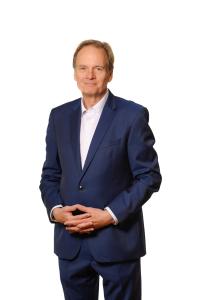Event reports
This situation often leads to self-censorship - many journalists are threatened and flee or hide to escape the litigation. Furthermore, there’s so little understanding about the media being the fourth column of democracy, that members of parliament are often unaware of the necessity for media law reform.
To heighten this awareness, KAS Media Africa hosted the “Media Law Reform in Africa Conference” in Cape Town at the end of November. There, important representatives from NGOs and political organisations met to share ideas for a joint strategy towards media law reform in Africa. The conference’s attendants all pursue the same goal of repealing laws which illegitimately criminalize freedom of expression. One year ago, a similar campaign was launched - the Midrand Declaration, the Pan-African Parliament and the African Charter for Human and Peoples’ Rights spearheaded it.
Pansy Tlakula, Special Rapporteur for Freedom of Expression and Access to Information, at the African Commission on Human and Peoples’ Rights, opened the conference. In her speech she encouraged the attendants to bring campaigns and initiatives under one umbrella to develop a common strategy, which can help to promote media law reform in Africa. Tlakula pointed out that many members of the Pan-African Parliament are already aware of the necessity for reform and have debated appropriate recommendations. She also advised the attendants to adjust the campaign according to national environments within Africa.
The attendants presented their work in the field from three focused panels. First, Karen Mohan from the Media Institute for Southern Africa (MISA), Ahmed Sayaad from the Centre of Human Rights at the University of Pretoria and East- Africa Director at Article 19, Henry Maina, presented the provisional assessment of the Decriminalization Campaign. Previous research results illustrated that many countries have similar laws, which contribute to journalists’ repression. For the next years a set of national campaign groups is supposed to work on changing those laws. Therefore the next step of the campaign will be to identify appropriate national contact people.
During the second panel, Simon Delaney from the South African Litigation Centre (SALC), Nani Jansen from the Media Legal Defense Initiative (MLDI) and Tom Rhodes from the Committee to Protect Journalists (CPJ) delivered insight into the work as an advocate for journalists during litigations. Defamation is often the reason for a trial and in many cases journalists are sentenced for years. The members of the panel pointed out the ambiguous definition of sedition. They demanded for increased awareness to media lawyers, to publish more cases in which journalists have illegitimately been sentenced.
On the second day of the conference Cherilyn Ireton from the World Association of Newspapers and News Publishers (WAN-IFRA) and Justine Limpitlaw from SALC discussed the difficulties within the process of law reform. Justine Limpitlaw, author of the Media Law Handbook by KAS Media Africa, explained that governments are often not interested in media law reform and generally consider the press as opposition. Furthermore, laws are only changed on paper but not transferred to practice. So there is a need for a strategy which convinces governments to reform their laws – not only sustainably but also to implement it.
The second half of the conference dealt with the development of the campaign’s next steps, both nationally and regionally. Initially, Malawi, Zambia, Lesotho, Tanzania and Burundi will be the focal countries. Main points are the improvement of visibility of the campaign on the internet and the social media and the identification of parliament members, who can function as pioneers. Moreover, the campaign’s focus should be broadened and not only refer to press freedom but also to freedom of expression in general. Therefore the number of lawyers involved in the campaign should be increased.
The Media Law Reform in Africa Conference was a huge success. The campaign has gained momentum and the overall feeling expressed…. On duty for media law reform and a fairer media landscape in Africa!












